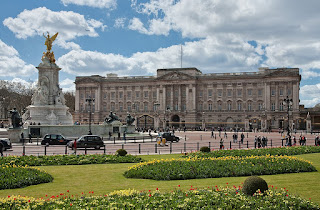Her Majesty the Queen has, foolishly in my view, rubber-stamped Boris Johnson's request to shut down parliament for five weeks during the worst political crisis in the UK since World War Two. This is the letter I have written to her:
Her Majesty the Queen,
Buckingham Palace,
London SW1A 1AA.
30 August 2019
Your Majesty,
I write this letter with great regret. I have always been a
royalist, but now you have turned me into a republican.
The reason is straightforward. The national interest of our
country, and particularly the long-term interest, such as protecting our
democracy, is not the same thing as what a particular prime minister or
government happens to find convenient at a particular moment. So there needs to
be someone in our constitution who plays the role of standing up for the
national interest, when necessary, against the prime minister or government of
the day.
I had always hoped that, in extremis, the monarch would take
this role. However, your caving in to Boris Johnson’s request to silence
parliament during the worst political crisis since World War Two makes it clear
that I was wrong. So if the monarch is not prepared to defend the national interest,
the UK needs someone who can and will – probably an elected president. In which
case, there seems little point in having a monarch.
With great respect, I think you were foolish to accede to Mr
Johnson’s request. The argument over Brexit is the most bitter and divisive I
have ever seen in this country during my (rather long) life, and you have now
taken sides in it. And according to the evidence of virtually all opinion polls
of the last three years, you have chosen the side that is in the minority.
Why did you refuse to meet Jeremy Corbyn before agreeing to
Mr Johnson’s request? I am not an admirer of Mr Corbyn, but he is the Leader of
your Loyal Opposition, and deserved to be heard at this time.
Could you not have demanded time to consider Mr Johnson’s
request, giving you the opportunity to consult some of the many privy
councillors who were denied the chance to come and meet you? Surely at the very
least, the other five living prime ministers would have been worth talking to?
Could you have agreed to a prorogation, but one for the normal three or four
days instead of five weeks? Could you have said this must be a matter for
parliament itself, and that it was up to MPs to decide whether it should be
shut down?
The situation is made even more serious by the fact that it
appears the privy councillors who secured your agreement may have lied to you. I
do not, of course, know what they said to you, but what they are telling the
rest of us is that the prorogation was necessary to allow Mr Johnson to prepare
the Queen’s Speech and let MPs go off to the party conferences (though MPs had
not yet voted on whether parliament should be closed during the conferences), but
the ‘Secretary of State for Defence’ – who is apparently called Ben Wallace –
has been recorded admitting that this is all lies and the real purpose of the
prorogation is the fear that parliament may not obey Mr Johnson’s orders.
Here is a link to the recording of his admission: https://www.independent.co.uk/news/uk/politics/boris-johnson-suspend-parliament-brexit-ben-wallace-video-prorogue-a9083851.html
I appeal to you to reconsider this matter, and withdraw your
permission for the prorogation.
Yours sincerely,
John Withington







